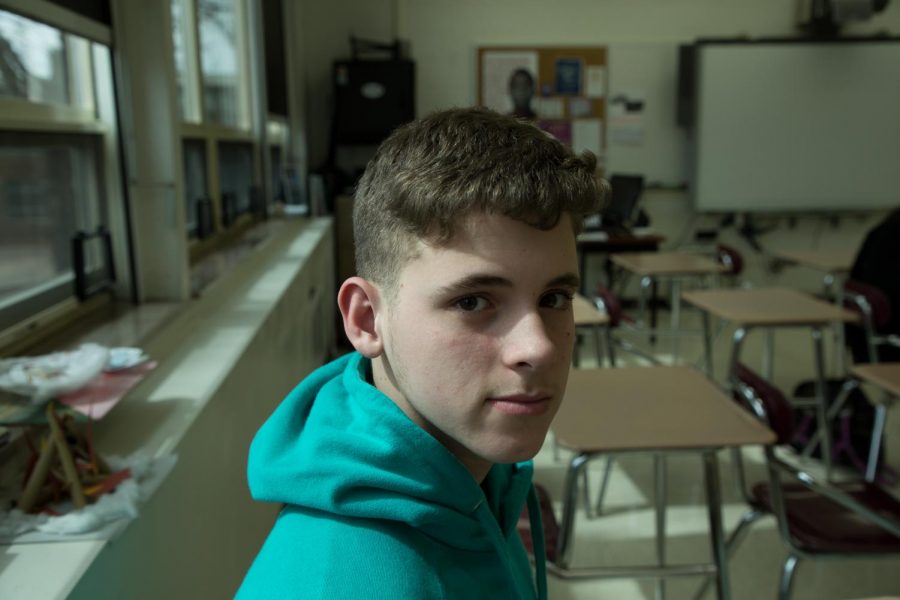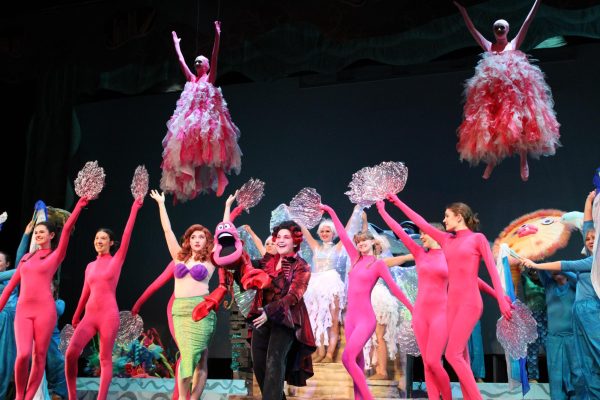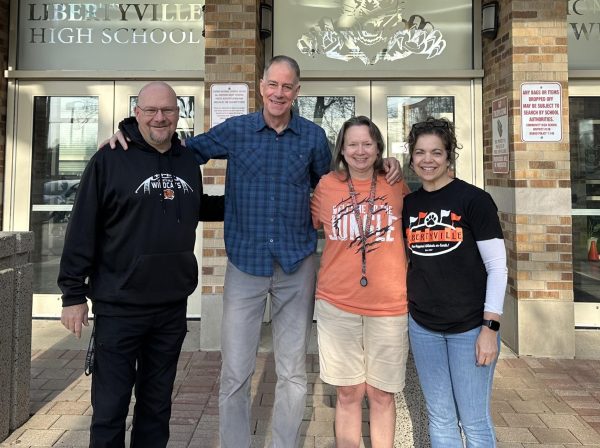‘New culture, new expectations’
Sophomore Carlos Soto from Puerto Rico in his EL classroom.
The strongest hurricane to hit Puerto Rico in more than 80 years, Hurricane Maria formed as a tropical storm on Saturday, Sept. 16, 2017. Four days later, on Sept. 20, Maria hit Puerto Rico as a Category 4 storm with winds that reached up to 155 mph. Maria devastated Puerto Rico, killing at least 51 people, and left the whole island with no power and demolished infrastructure. Puerto Rican authorities estimated there was between $45-95 billion in damages.
Because the island of Puerto Rico was destroyed and is still slowly recovering (about a third of its residents are still without power, according to NBC News), many of its citizens needed to evacuate and move to the mainland United States (Puerto Rico is a U.S. territory and its residents are U.S. citizens). Many Puerto Rican parents sent their children to America so that they could continue to attend school. In total, three Puerto Rican students have attended school at LHS while their country recovers, and two are still at Libertyville.
Sophomore Carlos Soto is one of these students. Soto is from Trujillo Alto, Puerto Rico, and came to Libertyville on Oct. 10. He is living here with his aunt, uncle and four younger cousins. His parents stayed behind in Puerto Rico and sent his older sister to Florida to live with their grandparents.
Life in Puerto Rico:
Before the hurricane, Soto said Puerto Rico was a very green place with lots of trees and plants. However, when he left, everything was in ruins. The mountains were completely brown because all the trees had lost their leaves. After the hurricane hit, he could not even get out of his home for two days because of all the destruction outside.
Soto, who has spent much of his young life working, hopes to get a job soon.
“I’ve been working since I was 9 years old. When I was 6, my mom got cancer and then my mom and dad got divorced, so my dad went away and my mom stayed home. So I’ve been taking care of my mom…She couldn’t work, so we depended on social security. She didn’t receive a lot of money, so I started working with things that I could,” he said. “I even sold my own toys so I could help my mom, and if I needed new shoes, I bought them so she wouldn’t have to worry about it. So, I’ve been working pretty much all my life. When I don’t work, I feel like I need to do something.”
Soto explained how although he, his mom and sister can bump heads sometimes, he still misses them greatly and talks to them almost every day. Back in Puerto Rico, his mom still does not have power. They live on a mountain, which usually has a lot of trees, but it’s been difficult for the workers who maintain the mountain to clean it up and put in new electrical lines.
“We knew when the hurricane passed, we were going to be out [of power] for months,” said Soto.
Experience at LHS:
As Soto’s counselor, Mr. John Mortillaro had to figure out Soto’s schedule of classes at LHS. Mr. Mortillaro explained how he “tried [to contact Soto’s old school] but unfortunately, they had no electricity, so it was very difficult. It took us a long time to get any official documents. When power was restored, his family that stayed back was able to go to the school and get them and send them. Initially, he brought me a list of the classes he was scheduled to take at his school there, and we tried to match them up as best we could.”
Academically, Soto first thought he was going to be very behind in his school work, as he came in the middle of first semester. Initially, he would spend three to four hours a day studying to catch up on and keep up with his work. But, after starting second semester after winter break with everyone else, he said he does not have to spend so much time after school on homework and studying.
Mr. Mortillaro and Soto made a few adjustments to his initially constructed schedule, but now there is a good mix of where he was and where he should be, they said. According to his teacher in the EL (English Language Learner) program, Mrs. Alison Reifenberg, he is performing well academically and is just like any other normal sophomore student.
As for any student moving to a new town and school, Soto had to adjust to the students and social life at LHS.
“Socially, I did not expect people to react in the way they did when I got here. The first day I got here, people were taking pictures of me and posting them on Instagram and some other weird stuff,” stated Soto. “And other people were looking at me like they were mad at me. This one kid told me to F-off. [Kids made] rumors about me saying that I’m gay.”
Through the EL program, Mrs. Reifenberg has attempted to ease Soto’s transition.
“[Adapting socially] is not just a Carlos experience; I think it is [something] all the EL students [deal with]…Carlos entered as a sophomore, not even as a freshman; it’s hard for any student to move, but to move into a completely new culture? It’s not even like moving to a new district. It’s moving to a new country, new culture, new expectations, and you don’t even know anyone,” she said. “So, I think for all of the students, it’s really tough. And I think some students aren’t as accepting as others, which is always upsetting. Overall this community is super accepting and welcoming, but a couple of students can put a damper on it. I think that is an important piece of information for people to know. On the whole, we’re a great, accepting community, but we cannot then pretend things like [how Soto was initially treated by some] don’t exist.”
Reifenberg described Soto as being outgoing from day one: “I feel like I knew who he was within a week of meeting him. He is just really open and outgoing…He’s one of the most talkative students that I have.”
Future Plans:
“Puerto Rico is not an option for me anymore,” Soto conveyed.
His mother is moving to Florida this summer, and while his dad is staying in Puerto Rico, Soto can’t stay in Puerto Rico even if they recover and there is electricity and clean water. He explained how it is still not a good place to be living because although there are jobs, they don’t pay enough to make it worth living there. Soto said he is either going to stay in Libertyville or move to Florida in the upcoming years, but he’s uncertain.
Despite an unsure future, Mr. Mortillaro and Soto still met during course selection to plan out classes for next year.
“The most important part is making my mother and father happy by getting good grades, focusing on school…the most important thing is to make my mom and dad proud,” expressed Soto. “They sent me here, and I don’t want them to think that they sent me here for nothing. I want them to think that they sent me here and it was worth it. That’s the most important thing.”







